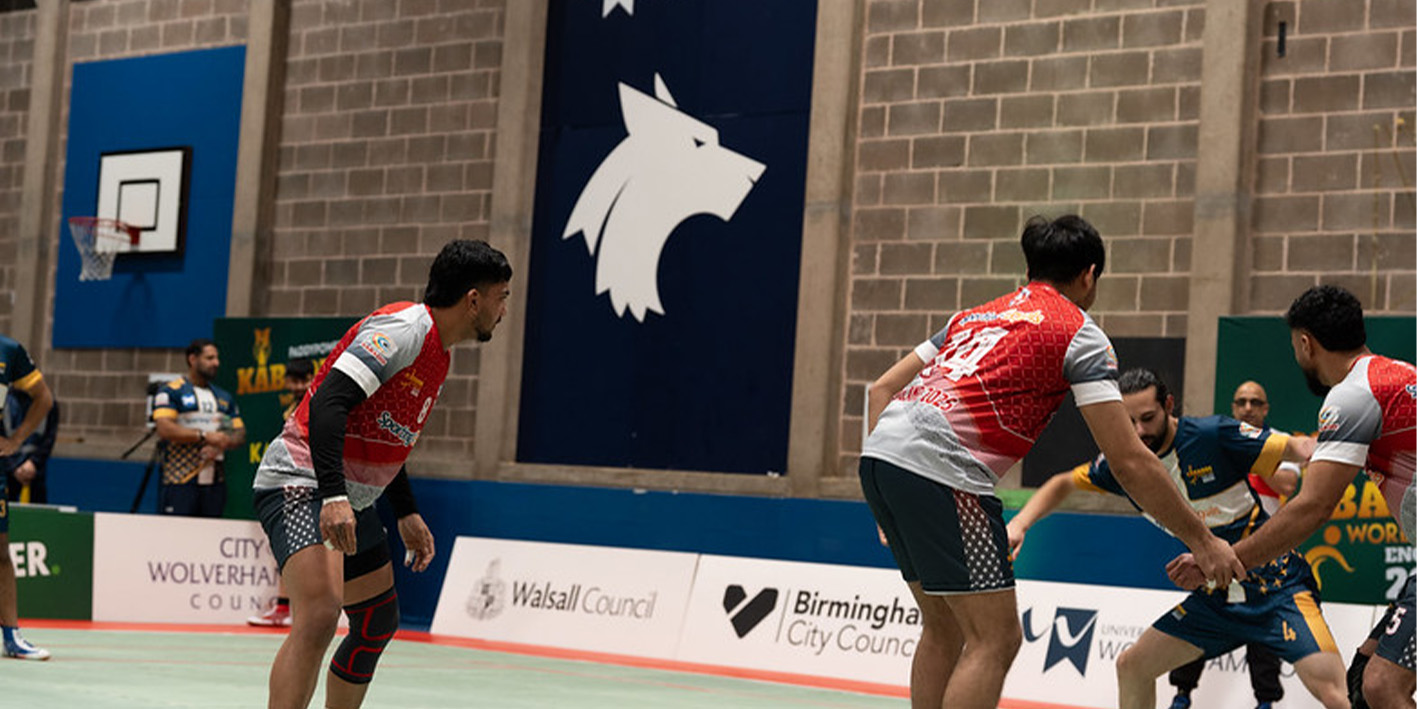
Research shows crowds hold the cards in referees’ decisions
.jpg)
A team of university researchers have been working to investigate whether football crowds are influencing referees’ behaviour in the top four professional Leagues in England.
Project lead, Alan Nevill at the University of Wolverhampton has been working in collaboration with experts Dr Tom Webb and Alastair Pearson at the University of Portsmouth on the study ‘No crowds, no home advantage in football during the COVID-19 season: Are crowds able to manipulate all but the best referees’ behaviour?’
The study, published in the Journal of Global Sport Management, confirmed that without crowds, there was no home advantage in association football during the COVID-19 2020-21 season. This led to the research team investigating the obvious question, “Are crowds influencing referees’ behaviour?”
The COVID-19 pandemic has provided a unique opportunity to assess the influence of crowds or, more accurately, their absence on the home advantage. During their research, the experts compared referees’ actions in ‘crowd vs no crowd’ games.
The number of home and away red and yellow cards awarded in the ‘no crowd’ COVID-19 2020-21 season for the top four English divisions were compared with the home and away cards awarded during the previous ten ‘crowd’ seasons from 2010-11 to 2019-20.
Results revealed that there was no home advantage in red and yellow cards awarded by referees in all four English divisions during the COVID-19 2020-21 season. In contrast, referees awarded significantly more cards to away players when adjudicating with crowds during seasons 2010-11 to 2019-20.
However, in more recent ‘crowd’ seasons, Premier League referees are less susceptible to such influences with a narrowing of the gap between home and away yellow cards, suggesting that their preparation, management, and training provide them with an element of ‘crowd immunity.’
The research team’s findings concluded that home crowds are, in fact, able to influence all but the very best referees’ behaviour.
These findings have the potential to influence the training and development of referees at many levels of the game and to provide referee educators with the information to focus future training initiatives aimed at reducing home advantage further in all professional leagues in England.
Project Lead, Alan Nevill, Research Professor in the Faculty of Education Health and Wellbeing at the University of Wolverhampton said: “Our study provides overwhelming evidence that crowds are able to manipulate professional referees to award significantly more red and yellow cards to away players (compared to home players), an effect that disappears when crowds are absent.”
Dr Tom Webb, Senior Lecturer in Sport Management and MSc Sport Management course leader in the School of Sport, Health & Exercise Science at the University of Portsmouth, said: “Our findings provide powerful evidence that home crowds can manipulate all but the very best referees to be their twelfth man.
“It is interesting that Premier League referees appear to be less susceptible than less experienced referees in lower divisions - there are a variety of reasons why that may be. For example, in the Premier League psychologists have been introduced to work with referees and technological innovations, such as goal-line technology and video assistant referees (VAR), have been introduced to assist referees in their performance.
“Also, the growth of the Premier League has led to increased investment in professional referees and the potential for a wider gap to emerge between these referees and those referees operating within the professional game in the lower leagues.”
Alastair Pearson, who is currently undertaking a Professional Doctorate in global netball match officiating, in the School of Sport, Health & Exercise Science at the University of Portsmouth said: “It’s clear that there needs to be more advanced and effective training provision for referees that operate outside the Premier League. This can be done in a number of ways. First, training on the subject of home advantage specifically and decision-making should be introduced for referees. They should also be trained to shut out the crowd and to deal with hostile crowds when officiating.
“There should be a wider and more structured mentoring programme for referees at lower levels to engage with more experienced officials and placement at matches in higher leagues as part of their development process.
“Further financial investment is crucial to ensure that referees continue to develop their decision-making skills. Further psychological support could also be provided for referees operating in League 1 and League 2.”
Find out more about research at the University of Wolverhampton.
For more information please contact the Corporate Communications Team.


/prod01/wlvacuk/media/departments/digital-content-and-communications/images-2024/Diane-Spencer-(Teaser-image).jpg)
/prod01/wlvacuk/media/departments/digital-content-and-communications/images-18-19/220325-Engineers_teach_thumbail.jpg)
/prod01/wlvacuk/media/departments/digital-content-and-communications/images-2024/241024-Dr-Christopher-Stone-Resized.jpg)
/prod01/wlvacuk/media/departments/digital-content-and-communications/images-2024/UoW-City-Campus-(Teaser-Image).jpg)
/prod01/wlvacuk/media/departments/digital-content-and-communications/images-2024/241014-Cyber4ME-Project-Resized.jpg)
/prod01/wlvacuk/media/departments/digital-content-and-communications/images-2024/240315-Research-Resized.jpg)
/prod01/wlvacuk/media/departments/digital-content-and-communications/images-2024/WMCA-event-(teaser).jpg)
.jpg)
.jpg)